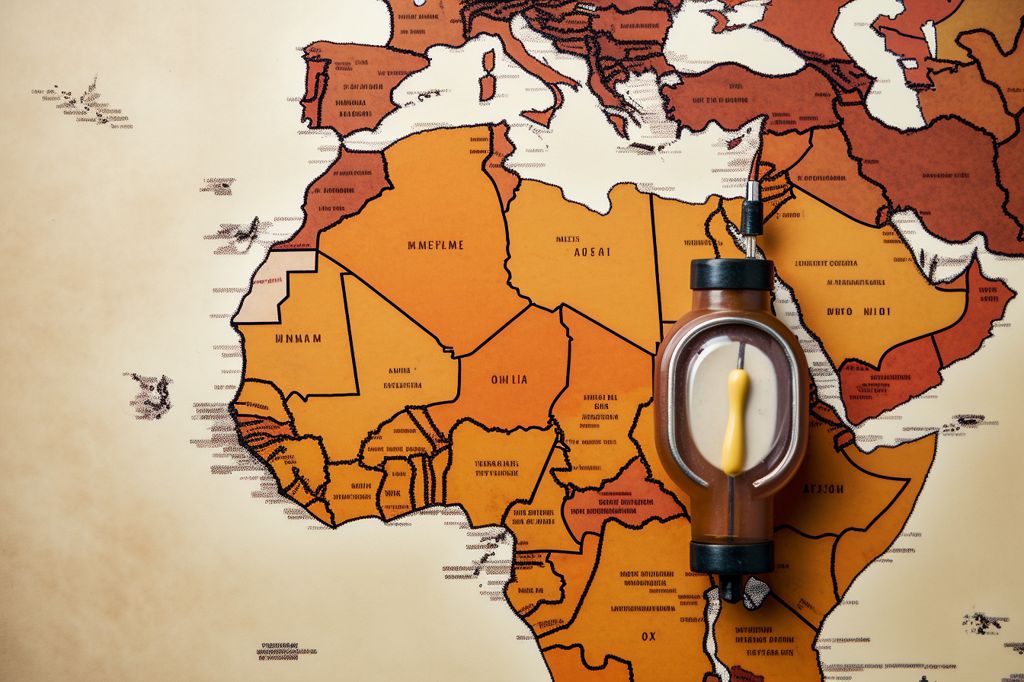A Groundbreaking Partnership for Health Advancement
South Africa is entering a new and exciting phase in healthcare with the recent announcement of local insulin production. A collaboration between Danish pharmaceutical giant Novo Nordisk and Aspen, the largest pharmaceutical manufacturer in Africa, aims to revolutionize insulin treatment accessibility for millions of Africans.
The historic deal was unveiled at an event in New York, attended by South African President Cyril Ramaphosa, WHO Director-General Dr. Tedros Adhanom Ghebreyesus, Danish Finance Minister Mr. Nicoli Wammen, and South Africa’s Minister of Trade, Industry, and Competition, Mr. Ebrahim Patel. Minister Patel emphasized the importance of the partnership, explaining that the collaboration between Novo Nordisk, a global leader in diabetes research and innovation, and Aspen will enable human insulin production in Africa. Under a contract with Novo Nordisk, Aspen will manufacture the insulin, paving the way for increased insulin treatment access across the continent.
Addressing the Rising Tide of Non-Communicable Diseases
The COVID-19 pandemic has reinforced the importance of science and innovation in the fight against disease and the promotion of healthy living. With growing populations and changing lifestyles, non-communicable diseases are increasing, placing pressure on communities, families, and healthcare systems. This major step in insulin production represents a significant advancement in the battle against chronic illnesses.
According to the agreement, human insulin will be produced in South Africa by transforming insulin into finished dose vials. The joint initiative plans to supply over one million patients with 16 million doses in 2024, expanding to four million patients by 2026.
Minister Patel also drew attention to the potential for further manufacturing and licensing opportunities in areas like sterile cartridge production and new drug classes, such as glucagon-like peptide-1 (GLP-1), which remain largely unavailable to patients in Africa.
Economic Benefits and Environmental Impact
Aspen’s sterile facility in Gqeberha, South Africa, will be used for insulin production, taking advantage of infrastructure previously employed for COVID-19 vaccine manufacturing. This project will create 250 new jobs and is expected to commence in early 2024, reducing the transport-related carbon footprint by 68%.
The collaboration between Novo Nordisk and Aspen has far-reaching economic implications in addition to the evident healthcare benefits. Africa’s 1.4 billion population offers a vast market, providing a compelling commercial rationale for producing pharmaceuticals on the continent for both local consumption and worldwide distribution. Currently, Africa imports 99% of its vaccines and approximately 80% of its pharmaceutical needs, resulting in a growing trade deficit. The local production of insulin will contribute to reducing this deficit and bolstering Africa’s economic standing.
A Healthier Future for the African Continent
In summary, the announcement of insulin production in South Africa signifies a crucial advancement in the nation’s healthcare and economy. Through the cooperation between Novo Nordisk and Aspen, millions of Africans will soon have improved access to life-saving insulin treatments. This development will help address the escalating prevalence of non-communicable diseases, paving the way for a healthier future for the African continent.








